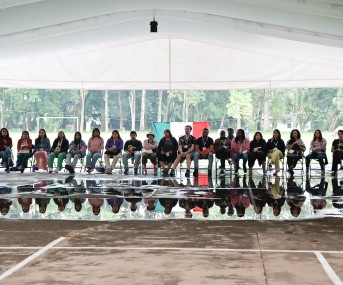Throughout the six-month program, 8 community organizers who have experienced the harmful effects of climate disinformation in their communities first-hand, explored how disinformation spreads within their national and local contexts. They uncovered the narratives, actors, and systems that shape disinformation, and the direct impact they are having on frontline communities. Read on to see the results!
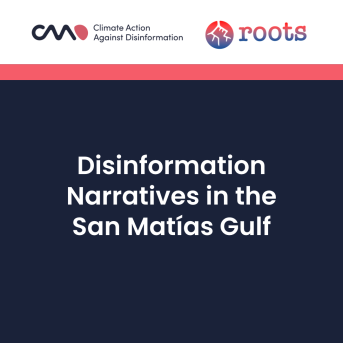
Fabricio, Argentina.
Fabricio investigated how a coordinated media disinformation strategy is promoting extractivist projects and political agendas in San Matias Gulf, Patagonia. Local outlets, amplified by paid advertising, form a network and create an apparent consensus, normalizing fossil fuel expansion while minimizing socio-environmental risks through a nationalist-driven strategy.

Cherish, South Africa.
Cherish found that building resilience against disinformation requires community-led, local journalism in people’s own language. Residents of Majuba Village understand environmental change through daily observations and lived experience, connecting weather, crops, and wildlife to human and social behaviors, demonstrating that traditional knowledge and scientific understanding must coexist to ensure no one is left out in the fight against climate disinformation.
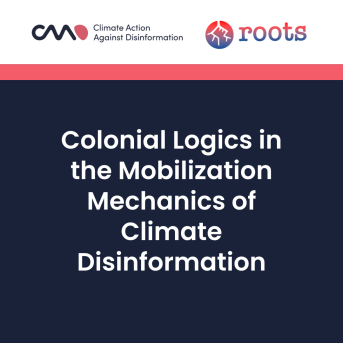
Essien, Nigeria.
Essien found that colonialism has affected climate change narratives through exploitative measures. Disinformation spreads through social networks, religious leaders, media, and online platforms, shaping what information people trust. Addressing it requires supporting trusted local scientific voices, teaching critical climate knowledge in communities, and holding digital platforms accountable.
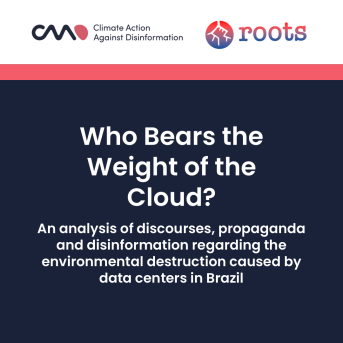
Marilia, Brazil.
Marilia spoke with communities affected by new data centers in Brazil, where false narratives are used to block regulation. Narratives around investment, job creation, and the sector’s 'green' image are systematically hiding the real social and environmental impacts.
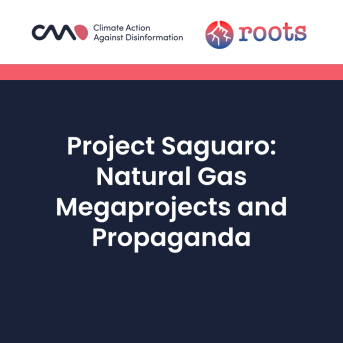
Jacqueline, Mexico.
Jacqueline looked at how YouTube and Facebook promote fossil fuel projects like Saguaro LNG. Disinformation frames these projects as economically and socially beneficial, calling fossil gas a “transition fuel” while hiding their true environmental and structural impacts.
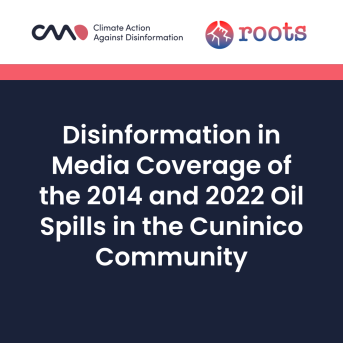
Silvana, Perú.
Silvana investigated how media shifts blame for fossil fuel impacts onto environmental defenders. Traditional media in Peru largely reproduce official narratives about the 2022 oil spill, downplaying its severity, hiding long-term consequences, and reinforcing negative stereotypes about Indigenous communities.
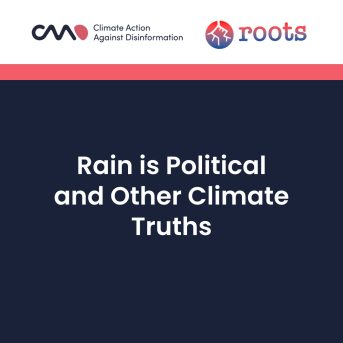
Alison, Uganda.
Alison spoke to local farmers and climate organizers who explained the influence of religion and the idea of Western conspiracies when it came to understanding the climate crisis.
